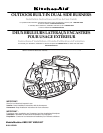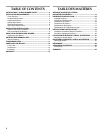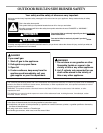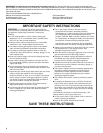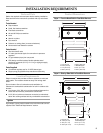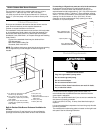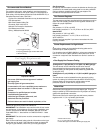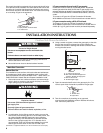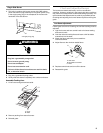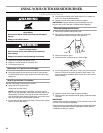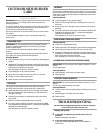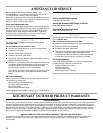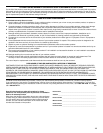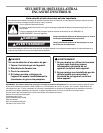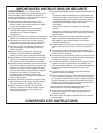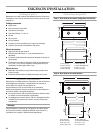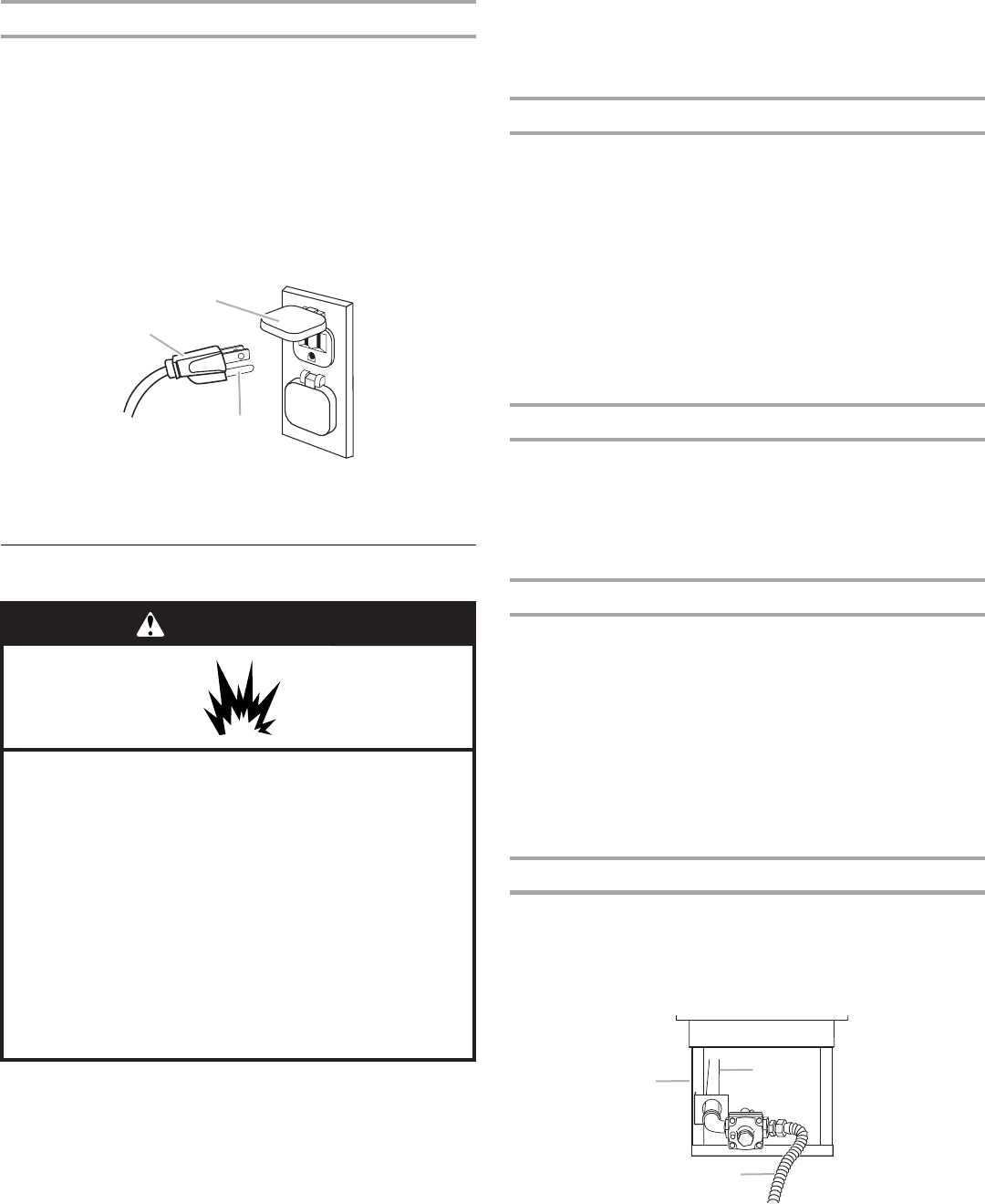
7
Recommended Ground Method
The outdoor side burner, when installed, must be electrically
grounded in accordance with local codes or, in the absence of
local codes, with the National Electrical Code ANSI/NFPA 70, or
Canadian Electrical Code, CSA C22.1.
Copies of the standards listed above may be obtained from:
CSA International
8501 East Pleasant Valley Rd.
Cleveland, Ohio 44131-5575
National Fire Protection Association
One Batterymarch Park
Quincy, Massachusetts 02269
Gas Supply Requirements
Observe all governing codes and ordinances.
IMPORTANT: This installation must conform with all local codes
and ordinances. In the absence of local codes, installation must
conform with American National Standard, National Fuel Gas
Code ANSI Z223.1 - latest edition or CAN/CGA B149.1 - latest
edition.
IMPORTANT: The side burner must be connected to a regulated
gas supply.
Refer to the model/serial rating plate for information on the type
of gas that can be used. If this information does not agree with
the type of gas available, check with your local gas supplier.
Gas Conversion:
No attempt shall be made to convert the side burner from the gas
specified on the model/serial rating plate for use with a different
gas type without consulting the serving gas supplier. The
conversion kits specified must be used.
Gas Pressure Regulator
The gas pressure regulator supplied with this side burner must be
used. The inlet (supply) pressure to the regulator should be as
follows for proper operation:
LP Gas:
Set pressure: 11" (27.9 cm) WCP
Inlet (supply) pressure: 11" to 14" (27.9 cm to 35.5 cm) WCP
Natural Gas:
Set pressure: 4" (10.2 cm) WCP
Inlet (supply) pressure: 7" to 14" (17.8 cm to 35.5 cm)
WCP maximum.
Contact local gas supplier if you are not sure about the inlet
(supply) pressure.
Burner Requirements for High Altitude
Input ratings shown on the model/serial rating plate are for
elevations up to 2,000 ft (609.6 m).
For elevations above 2,000 ft (609.6 m), ratings are reduced at a
rate of 4% for each 1,000 ft (304.8 m) above sea level. Orifice
conversion is required. See “Assistance or Service” section to
order.
Gas Supply Line Pressure Testing
Testing above ½ psi (3.5 kPa) or 14" (35.5 cm) WCP (gauge):
The side burner and its individual shutoff valve must be
disconnected from the gas supply piping system during any
pressure testing of that system at test pressures greater than
½ psig (3.5 kPa).
Testing below ½ psi (3.5 kPa) or 14" (35.5 cm) WCP (gauge) or
lower:
The side burner must be isolated from the gas supply piping
system by closing its individual manual shutoff valve during any
pressure testing of the gas supply piping system at test
pressures equal to or less than ½ psig (3.5 kPa).
Natural Gas:
Side burners are equipped for use with Natural gas. They are
design-certified by CSA International for LP (propane or butane)
gases with appropriate conversion.
Side burners are set for natural gas use and have a pressure
regulator with ¹⁄₂" (1.3 cm) female pipe threads.
A.3 prong ground plug
B.3-prong polarized type outdoor GFI outlet
C.Ground prong
A
B
C
WARNING
Explosion Hazard
Use a new CSA International approved “outdoor”
gas supply line.
Securely tighten all gas connections.
If connected to LP, have a qualified person make sure
gas pressure does not exceed 11” (28 cm) water
column.
Examples of a qualified person include:
licensed heating personnel,
authorized gas company personnel, and
authorized service personnel.
Failure to do so can result in death, explosion, or fire.
A.Rear side of burner
B.¹⁄₂" (1.3 cm) side burner gas pipe
C.New CSA approved outdoor flexible gas supply line
A
B
C



